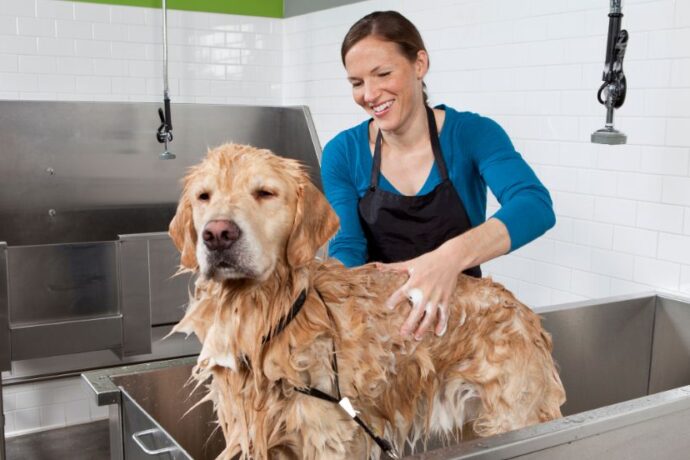Dogs are more than just pets—they’re family. But unlike humans, they can’t tell us when something’s wrong. As a responsible pet parent, it’s crucial to recognize the subtle signs that your dog might be sick. Early detection can prevent serious illnesses and ensure your furry friend enjoys a healthy, happy life. Research shows that routine monitoring of behavior, appetite, and energy levels can significantly improve outcomes when health issues arise.
7 Warning Signs Your Dog Could Be Sick
1. Changes in Appetite or Thirst
A sudden decrease or increase in appetite or water consumption may signal a health problem. For instance, excessive thirst can indicate diabetes or kidney issues, while loss of appetite might point to gastrointestinal problems or infections.
Studies in veterinary medicine emphasize that persistent appetite changes are among the most common early indicators of illness in dogs (1).
2. Lethargy or Reduced Activity
If your usually active dog suddenly seems tired, reluctant to play, or avoids walks, it could be more than just a lazy day. Fatigue and reduced activity levels are often associated with infections, heart disease, or metabolic issues.
Veterinary research suggests that noticeable changes in energy levels should prompt an evaluation by a professional (2).
3. Vomiting or Diarrhea
Occasional vomiting or diarrhea isn’t uncommon, but frequent or severe episodes can indicate serious health problems such as gastrointestinal blockages, infections, or liver and kidney disease.
According to studies, prolonged digestive symptoms in dogs require timely veterinary intervention to prevent dehydration and further complications (3).
4. Unexplained Weight Loss or Gain
Sudden weight changes without a change in diet are red flags. Weight loss can indicate conditions like diabetes, cancer, or thyroid problems, whereas rapid weight gain may suggest fluid retention due to heart or kidney issues. Research confirms that tracking your dog’s weight is an essential part of preventive care (4).
5. Coughing, Sneezing, or Breathing Issues
Persistent coughing, sneezing, or difficulty breathing may signal respiratory infections, allergies, or even heart problems. Veterinary studies show that respiratory symptoms, especially when combined with lethargy or loss of appetite, should never be ignored (5).
6. Behavioral Changes
Dogs can’t speak, but changes in behavior—such as aggression, anxiety, or withdrawal—may indicate discomfort or pain. Studies have found that behavioral shifts can often be the earliest signs of illnesses like arthritis, dental disease, or neurological conditions (6).
7. Skin, Coat, or Ear Problems
Itchy skin, hair loss, sores, or unusual ear discharge often point to infections, allergies, or hormonal imbalances. Veterinary research highlights that skin and coat health is closely linked to overall wellness, and neglecting these signs can allow underlying diseases to progress (7).
Easy-to-read chart
| Sign | What to Look For | Possible Causes |
| Changes in Appetite or Thirst | Sudden loss of appetite, refusal to eat, increased water intake | Diabetes, kidney disease, infections, dental pain |
| Lethargy or Reduced Activity | Reluctance to play, avoid walks, excessive sleeping | Heart disease, thyroid problems, infections, anemia |
| Vomiting or Diarrhea | Frequent vomiting, watery stools, blood in vomit or stool | Gastrointestinal infections, parasites, blockages, liver/kidney issues |
| Unexplained Weight Loss or Gain | Rapid weight changes without diet/exercise change | Cancer, diabetes, heart/kidney problems, metabolic disorders |
| Coughing, Sneezing, or Breathing Issues | Persistent cough, wheezing, shortness of breath | Respiratory infections, allergies, heart disease, tumors |
| Behavioral Changes | Aggression, withdrawal, excessive whining, anxiety | Pain, neurological issues, chronic illness |
| Skin, Coat, or Ear Problems | Itchy skin, hair loss, sores, dull coat, ear discharge | Allergies, infections, parasites, hormonal imbalances |
When It’s Time to See a Vet
Even mild symptoms should be monitored closely. However, immediate veterinary attention is necessary if your dog experiences:
- Persistent vomiting or diarrhea
- Difficulty breathing
- Severe lethargy or collapse
- Sudden seizures
- Blood in stool or urine
Veterinarians can perform a physical examination, run diagnostic tests, and recommend treatments based on evidence-based protocols. Early intervention can save your dog from serious complications and improve recovery chances.
FAQs About Dog Health
1. How often should I check my dog’s health?
A. Routine health checks at home should be daily for obvious signs like behavior, appetite, and grooming habits. Professional veterinary exams are recommended at least once a year, or more frequently for senior dogs or those with chronic conditions.
2. Can diet changes affect these symptoms?
A. Yes. Sudden diet changes can temporarily upset digestion. However, persistent vomiting, diarrhea, or lethargy should not be attributed solely to diet. Consult your vet if symptoms continue.
3. Are some breeds more prone to certain illnesses?
A. Absolutely. Larger breeds are more prone to joint and heart issues, while small breeds may develop dental and metabolic problems earlier. Knowing your dog’s breed-specific risks helps in proactive monitoring.
Conclusion:
Your dog relies on you to notice when something is wrong. By staying observant and responding quickly to symptoms, you can prevent minor issues from becoming life-threatening. Regular check-ups, a balanced diet, and attention to behavioral and physical changes are the best tools for keeping your dog healthy and happy. Remember, when it comes to your furry friend’s health, it’s always better to err on the side of caution—never ignore potential warning signs.
References:
1. Behavioural and Medical Differentials of Cognitive Decline and Dementia in Dogs and Cats
2. Veterinarian burnout demographics and organizational impacts
3. Disorders of the Stomach and Intestines in Dogs
4. How Successful Are Veterinary Weight Management Plans for Canine Patients
5. Symptoms of Pneumonia in Dogs & How It Is Treated
6. A Review of Medical Conditions and Behavioral Problems in Dogs and Cats
7. Coat and Skin Appearance in the Healthy Dog











